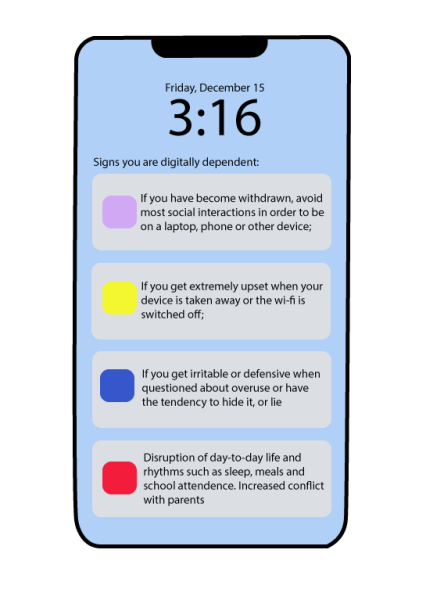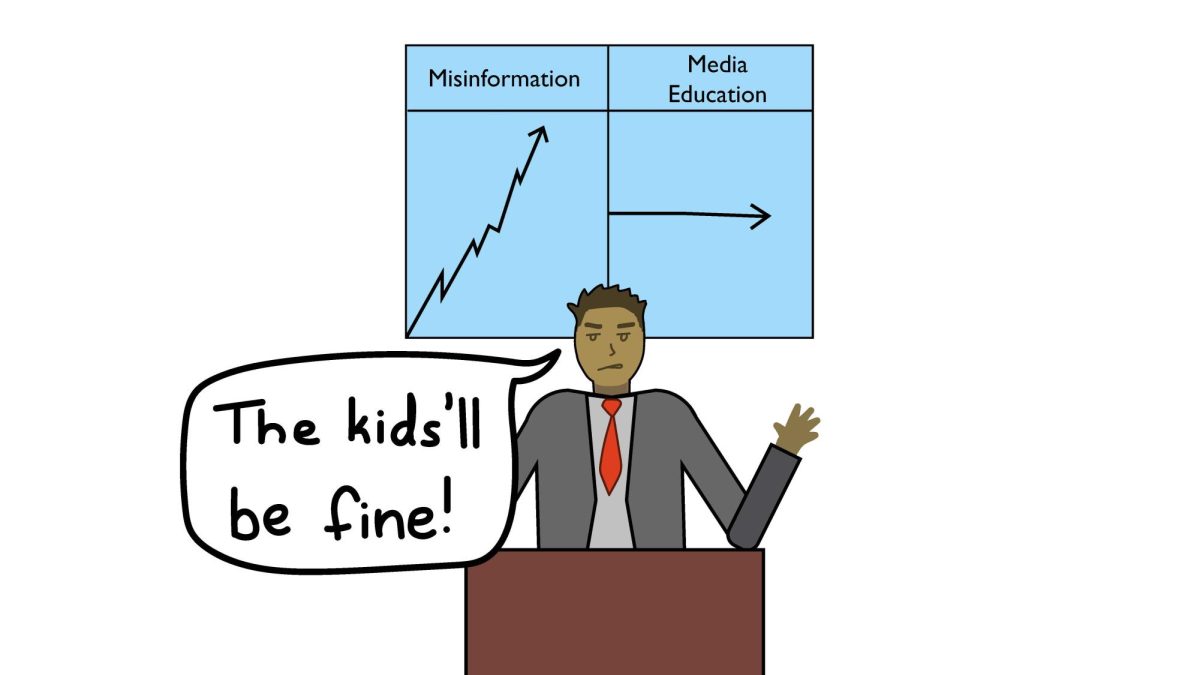The advancement of social media in the 21st century has changed the way people communicate and connect, making video-sharing and new trends more accessible than ever. In particular, short-form media has exploded with popularity on many social media platforms, ranging from Instagram Reels to YouTube Shorts to TikTok. The usage of short-form media has not been limited to social media companies. Last December, Amazon launched Inspire, a scrolling-based shopping feed that allows certain users to advertise Amazon products through brief videos or photos in exchange for commission.
Any content under 60 seconds is considered short-form media. But while some people argue that social media has brought much positivity to the world by uniting entire communities around common interests, it is also dangerously addictive to consumers. The addictiveness of short-form media, fueled by factors such as dopamine and video algorithms, is harmful to the well-being of viewers.
Short-form videos release dopamine in the brain, which hooks teens and encourages users to keep scrolling. Dopamine makes people feel like they are being rewarded, causing them to repeat the action to receive more dopamine. Short-form videos also captivate viewers through random reinforcement. Random reinforcement, also known as Skinner’s reinforcement theory, is the misguided belief that a viewer will eventually find an entertaining video if they just keep scrolling. The combination of dopamine and random reinforcement is the main driving force that make short-form videos addictive, especially for adolescents, whose brains have not yet fully developed. Many social media companies take advantage of these effects to optimize profit, usually without regard to the health of the addicted consumer.
Since the pandemic, there has been a steep increase in the consumption of short-form media, with the most prominent being TikTok. A Common Sense study conducted in September 2023 found that out of 203 11- to 17-year-olds, 50% used TikTok for a median of 1 hour and 52 minutes a day. The fact that social media leads to many detrimental issues is largely ignored. The increasing prevalence of short-form media has an impact on the way our minds are wired, affecting our attention span, irritability and dependence on our devices. These side effects are increasingly problematic, especially in school settings where students need to maintain long periods of focus. Conditioned to have shorter attention spans, students may become more irritable, sparking conflicts in school and interrupting learning for those around them.
Media companies are not solely responsible for such troubling developments. Creators use short-form media to pump out as many videos as possible to reach more viewers, which usually leads to a decline in content quality and controversial titles to garner attention. Instead of enriching the minds of viewers, short-form media encourages creators to pollute the web with clickbait and potentially harmful ideas.
Fortunately, there are ways to combat addiction to short-form media. In October, 42 states sued Meta claiming that its apps — FaceBook and Instagram — are harmful and addictive to youth. Other platforms, including Google and TikTok, have been sued for similar reasons.
For the sake of consumers, social media companies need to be held more responsible for their apps. Most social media apps already have some form of regulation on their short-form media. TikTok has a restricted mode, which limits what viewers can see when scrolling online, blocking out mature or inappropriate content. And similar to Instagram, TikTok has daily screen time management, which can be set up by users and notifies them whenever they have spent a certain amount of time on the app.
However, these measures are still not enough to effectively battle against short-form media addiction. If users find themselves doomscrolling or flipping through videos too quickly, social media companies should implement policies that will keep the user from accessing the app for a short time period, such as 10 to 15 minutes, in order to encourage them to take their eyes off the screen. There should also be stricter regulations on the short-form media content allowed on the apps without needing to activate restricted modes or anything similar.
There are many possible changes that companies have the power to make, but at the end of the day, it is also important to note that companies exist to profit. Prompting users to have healthier relationships with short-form media negatively impacts revenue streams for companies and drives away company investors, making it unfeasible for most companies.
Despite this, hope can still be found in the small yet constant changes made by both companies and consumers, and viewers can start to realize the impact of short-form media and prevent themselves from being pulled in any further. Short-form media has sunk its addictive claws into the minds of many adolescents, but with the continued reform of social media companies and the growing awareness of teenagers, such addiction can be combated and eliminated once and for all.













Kevin Choy • Sep 21, 2024 at 10:57 PM
Great article that provides very relevant and important information in our social media-heavy society. Where the dangers of increasing short form media are still not readily understood, extending not just in terms of personal growth of the upcoming generations but also the format of the media also limits obtaining information on both sides of a subject before making decisions in many aspects of life including education, health and politics as well in just a 60 second video.
This was a very good article that stimulated good family discussion with our children who are also students at IHS.
Go Viks!